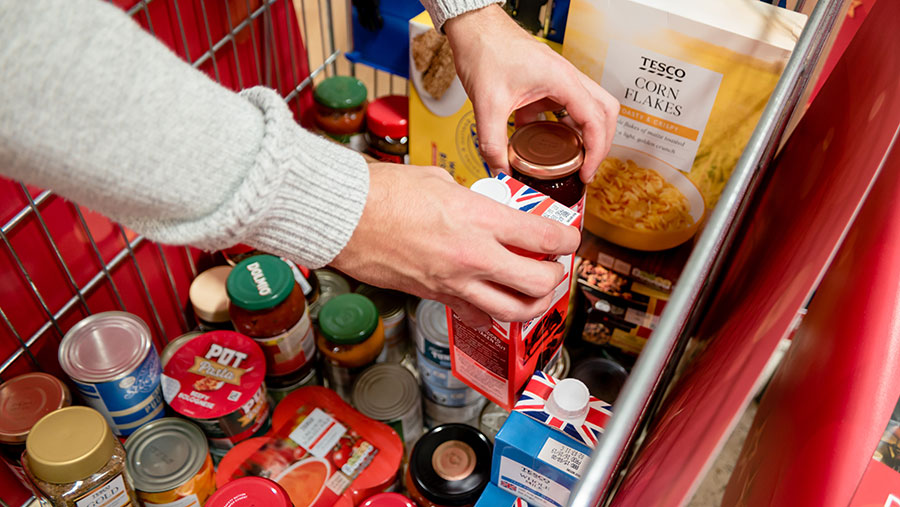Food prices to rise by 15% as increasing costs hammer farmers
 © HasPhotos/Adobe Stock
© HasPhotos/Adobe Stock Food price inflation is set to accelerate further this summer and prices will remain high until at least mid-2023, grocery analysts have warned.
The Institute of Grocery Distribution (IGD) has predicted a 15% rise in the cost of food staples such as meat, dairy, cereals, fruit and vegetable products in the coming months.
Products that rely on wheat for feed, such as poultry, are likely to soar in the short term, the IGD said.
See also: Opinion: 70 years on, and once again food security is an issue
The war in Ukraine, supply chain challenges related to the Covid-19 pandemic and Brexit, and limited effectiveness of monetary and fiscal policy are the driving forces behind the increases.
The study forecasts that the average monthly food bill for a family of four will reach £439 in January, up from £396 on the year.
Farmgate prices for milk, meat and cereals are expected to remain high throughout next season, but there is concern that they will fail to keep pace with soaring input and energy costs.
Fertiliser prices have almost tripled since last year and the price of Brent crude oil has quadrupled from about US$28/barrel (£22.71) in March 2020 to more than $120/barrel (£97.35).
UK wheat futures (November 2022) closed on Wednesday 15 June at £310.05/t, down £0.80/t on Tuesday’s close. May 2023 closed at £315.60/t, down £0.60/t over the same period.
AHDB forecasts
The AHDB has predicted a “sizeable” UK wheat crop for 2022-23 UK of about 15m tonnes.
“Even with a larger domestic supply next season, if the support and volatility in grain markets due to tight global supply continues, it is unlikely there will be a dramatic shift in UK prices,” it concluded.
Milk prices continue to rise as on-farm volumes reduce and costs grow, with further increases for July announced by a number of processors.
Overall UK inflation surged to 8.6% in May, a 40-year high. The Bank of England expects this figure to rise to about 10% for the full year.
Representatives from the food and drink industry from all four devolved nations travelled to Westminster on Thursday 16 June for a Cabinet meeting to discuss plans to mitigate price rises with Defra representatives, including environment secretary George Eustice.
Great to meet with representatives from the food and drink industry alongside @DefraGovUK to discuss work to mitigate current price rises.
The #FoodStrategy🌱 sets out how to boost the British food industry, back farmers and harness innovation to safeguard food security. pic.twitter.com/QDEgVkZu5g
— Steve Barclay (@SteveBarclay) June 14, 2022
A Defra spokesperson told the BBC: “It’s crucial we do everything we can to support the farming sector, that’s why we have announced measures to support growers with the availability of fertiliser, and we will be bringing forward 50% of the Basic Payment Scheme payment to July.
“We also recognise the food and farming industry is facing labour challenges.
“We have given greater certainty in accessing seasonal migrant labour by extending the seasonal workers visa route until the end of 2024. 30,000 visas will be available in 2022, with the potential to increase by 10,000 if there is clear evidence of need.”
